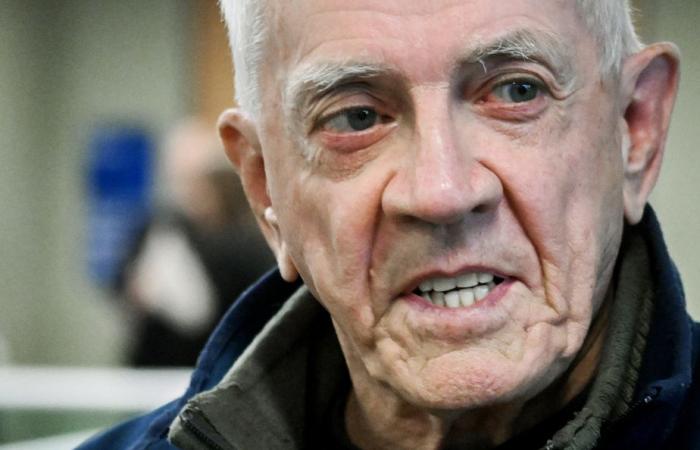The story of Thérèse Brassard-Lévesque, this woman suffering from Alzheimer's killed out of “compassion” by her husband, is of “immeasurable sadness”, according to judge Hélène Di Salvo. The magistrate hopes that such a death in “indignity” will not happen again in the “near future”.
Posted at 11:43 a.m.
“The situation of Mme Brassard-Lévesque is unfortunately not an isolated case. Let us hope that in 2024, the necessary help and support will be offered to the many families, who are faced with the same harsh reality of the Brassard-Lévesque family, in order to stop the distress and prevent the irreparable relives itself again,” said Judge Di Salvo on Friday at the Laval courthouse.
In a very empathetic decision towards the relatives of the victim and the accused, the Superior Court judge followed the joint recommendation of the parties and sentenced Gilles Brassard to life in prison without the possibility of parole before 10 years and a half.
“The Court cannot ignore the appeal for clemency from the accused's family, but discretion in the sentence to be imposed in a second-degree murder case is very limited,” explained Judge Di Salvo. The minimum period of parole ineligibility is 10 years.
Last week, the 81-year-old man pleaded guilty to the second-degree murder of his wife Thérèse Brassard-Lévesque. He said he killed his partner of the last 53 years out of “love” and “compassion” in September 2023 in order to send her to a “better world”.
For years, Thérèse Brassard-Lévesque had suffered from Alzheimer's. She no longer recognized her children and often became aggressive. Despite illness and his advanced age, Gilles Brassard devoted himself body and soul to his wife during the pandemic, according to all those close to him.
Gilles Brassard resignedly entrusted his wife to the health system in 2022. He was then at the end of his rope. But the care offered to Thérèse Brassard-Lévesque at the hospital, then at the Ressource de Lanaudière establishment, in Terrebonne, was mediocre, according to those close to her.
Thérèse Brassard-Lévesque slept with her shoes on. She was poorly fed and was rarely bathed. “Her nails were black. [Gilles] paid someone to take care of his feet,” a relative was outraged last week.
Desperate to see his wife's declining health, Gilles Brassard decided to kill her, then take his own life. He then strangled his wife with a rope on her bed. A scene filmed by a surveillance camera. “Close your little eyes and sleep,” her husband said to her before the fateful gesture.
PHOTO ROBERT SKINNER, THE PRESS
Gilles Brassard at the Laval courthouse last week
A death in “indignity”, according to the judge
Last week, those close to Gilles Brassard gave heartbreaking testimonies. Everyone supported the accused, despite the sadness and incomprehension. Their story affected a “large part” of the population,” according to Judge Di Salvo.
“We cannot ignore the helplessness of the family in the face of the harsh reality of the impact of this illness on the victim and those around them. Rarely in a decision for a sentence of murder in 2e degree, the words love, compassion and distress can find a place there. This is the case here,” the judge said.
“The Court has of course heard the family's suggestions regarding medical assistance in dying. The Court does not play politics, but can certainly hold that the death of Mme Brassard-Lévesque, in indignity, was not what the family wanted,” continued the judge.
A very similar case ended up in the hands of Judge Di Salvo in 2019, that of Michel Cadotte, who had also killed his partner “out of compassion”. However, a jury found him guilty of a lesser charge, that of involuntary manslaughter. The judge sentenced him to two years less a day in prison.
Judge Di Salvo took up certain passages from her decision in Cadotte, which prove to be just as relevant five years later.
“Medical assistance in dying, CHSLDs, natural caregivers, Alzheimer's disease have propelled the trial of Michel Cadotte – and here of Mr. Brassard –, despite themselves, to the forefront of legal news and to the heart of a social debate. […] However, the trial, the verdict and the sentence will not provide a solution to all these societal issues,” the judge quoted.
“It is sad to see that these comments are still relevant today. And hoping that they will no longer be in the near future,” concluded the judge, wishing “good luck” to the relatives of the accused and the victim.







